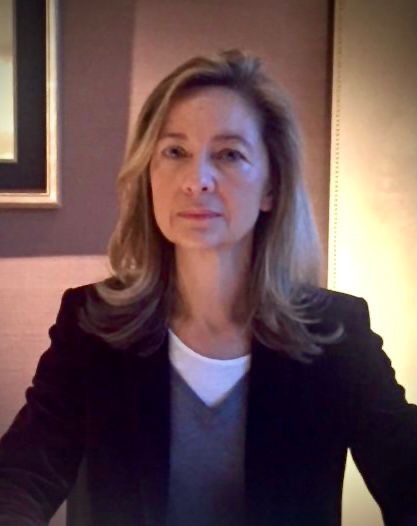
His research activity has been linked to the ideological-religious neutrality of the State and its various manifestations in Spanish and comparative law in relation to the financing of religious denominations, the management of the cultural heritage of ecclesiastical ownership, the management of religious diversity in services (public transport) and public institutions (Armed Forces), the teaching of religion in schools and private ownership and, more recently, in the sports context.
El sistema de financiación de la Iglesia católica a través de las exenciones fiscales, Universidad Complutense, Madrid, 2000.
Learn more about Silvia Meseguer Velazco.
Silvia Meseguer, in her presentation, gave answers to several questions that are frequently raised in the social and political debate. Can the neutral State finance the religious phenomenon? Is any form of economic collaboration between the State and the Churches admissible? Should the assets of the Catholic Church be exempt from taxation? And those of minority religious denominations?
The professor of State Ecclesiastical Law tried to answer these questions, from a legal perspective, and specifically from the comparative study of different public financing systems of the religious confessions that converge in other European systems.
In her dissertation, the specialist explained how to Spain is not an insignificant player in the European panorama in terms of financing of religious denominations. and specifically of the Catholic Church, but it is a country aligned with European legal systems.
The specialist recalled that in "all European countries, including secular France, there is funding for religious denominations, although they acquire different forms, according to the constitutional model that the different countries have in Church-State relations".
During the reflection meeting, Meseguer explained the different constitutional models.
The financing systems, broadly speaking, are also divided into three:
Silvia Meseguer explained that "In Spain, this system is only established for the Catholic Church, while in the rest of the countries it is established for other religious denominations, for example in Italy there are up to 8 boxes, whose contribution can be destined to the Italian Hebrew communities or the Seventh Day Adventists."
With respect to the debate that is frequently brought to the public's attention, the payment of IBI, it is true that The Church does not pay IBI on its churches and parishes, but neither do mosques or synagogues.
"Therefore, is not a privilege of the Catholic Church. Religious denominations that have cooperation agreements with the Spanish State, such as the Federation of Evangelical Entities of Spain, or the Federation of Jewish or Muslim Communities, do not pay IBI either. But the political discourse only talks about the Catholic Church and forgets that, in application of the Law of Patronage, these confessions are exempt from this tax, as are schools, consulates, embassies, hospitals, etc.", the expert points out.
Regarding the financing of religion through donations, Silvia Meseguer explained the deduction established for donations to foundations and religious entities. In Spain it is 30% of the amount donated; in France it is 60% and in the United States it is 100%.
"We have ample room to catch up with other countries," noted the professor of ecclesiastical law.
As to why it is necessary to finance religion in a non-denominational state, the speaker explained that the Constitution establishes that the public authorities must guarantee the religious freedom of individuals, similar to the way other fundamental rights are promoted.
"The Spanish TC has been very clear on this matter. A 2013 ruling, says that it is not enough for the legislator to recognize a fundamental right, but it also has to guarantee it. That is why it is necessary for the State to collaborate with religious denominations. The fact that the Spanish State is neutral and non-denominational is not an obstacle for them to finance religious freedom," he explained.
Therefore, pursuant to this judgment, the Spanish State, to guarantee religious freedomThe new law establishes a system of financing for the Catholic Church through the allocation of taxes.
The other denominations in Spain with cooperation agreements are not financed through the tax allocation, although the same system of tax benefits is applied (except for the Tax on Installations, Constructions and Works) since this system has not been extended to other religious denominations, as is the case, for example, in Italy.
However, the other religious denominations in Spain receive an amount from the General State Budget through the Pluralism and Coexistence Foundation which are allocated certain amounts to develop specific activities related to education, culture or integration.
The constitutionality of the tax allocation lies in the voluntariness of the taxpayer.The taxpayer, whether a member of the Church or not, who decides to contribute 0.7% of his or her Personal Income Tax to the Catholic Church, to other purposes, or both, or to no one, which would then go to the State.
Box X of the Income Tax is not a tax, nor does it change what the taxpayer pays or returns to the Treasury, but it is a system through which the taxpayer decides voluntarily where you want the 0.7% of your taxes to go.
In Spain, in short, as in other European countries, the basis for the financing of religion is to guarantee the right to religious freedom.
Silvia Meseguer closed her lecture by recalling that, at such times, it is advisable to move forward in the financial contribution of the faithful to the Catholic Church through regular subscription donations, a need that has been highlighted in these times of pandemic.
"Progress must be made in what is known as the concept of co-responsibility of the faithful, a concept that is highly developed in Italy or in the United States and in Spain is still limping along. It should be remembered that for periodic contributions for more than three years, the tax deduction amounts to 35%. But in my opinion, the tax deduction percentages in the law of patronage should also be improved to favor these donations," he concluded.
Here you can listen to Silvia Meseguer's conference at the CARF Reflection Meeting.